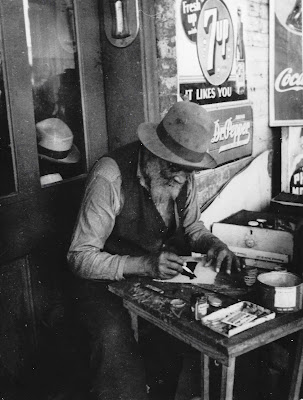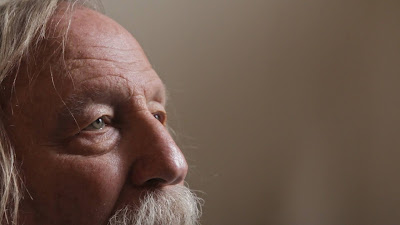The film begins with a "natural" disaster -- the summer-of-1995 heat wave that hit Chicago and killed hundreds of people -- and then quickly moves to make us understand how the particular choice (and, yes, it was a long-gestating choice) of exactly which people would die was anything but "natural."
Adapted from the book, Heat Wave: A Social Autopsy of Disaster in Chicago by sociologist and urban studies author Eric Klinenberg (shown at left). COOKED: SURVIVAL BY ZIP CODE tackles not just heat waves, hurricanes, and other natural disasters but why these always seem to first kill folk from low-income, non-white neighborhoods, along with why "disaster preparedness" seminars and demonstrations prepare mostly wealthy white enclaves for survival.
As directed by Peabody award-winner Judith Helfand (shown at right), Cooked brings to screen life Klinenberg's hugely important book. with interviews with both the citizens who suffered through these traumatic events and some of the policy-makers and folk in charge of the supposed survival mechanisms in place to protect us all. It is not a pretty picture.One of the great strengths of ths film is how Klinenberg and Helfand use history and statistics (from as far back as the early 1940s) to show us how injustices such as redlining prevented non-white citizens from obtaining bank loans and thus owning real estate, as did their white brethren.
Cooked was filmed prior to our current pandemic and prior to the death of George Floyd (and so many others) that seem now to have at least somewhat broadened the understanding and changed the attitude of a larger portion of America's white population. Still, to see and hear Helfand asking direct questions of these in-charge men and women, and to see how her interviewees pause, look away, and either make excuses or practically outright say,"Well, yes, but good luck with trying to change any of this," is alternately shocking and deadening.
Perhaps now, with all that has happened in and to our country over the past year, we might be able to look forward to actual change finally arriving. Meanwhile, we have all the evidence we need of its urgency and importance. Early on in the film, I think it was Klinenberg who points out how so much of how we live and what we are allowed to see and understand has kept the entitled portion of our population "protected and blissfully ignorant."
By the finale of this very important documentary, I suspect you will completely agree with Ms Helfand when she notes "how deeply flawed and immoral our national priorities are." Cooked, however, is not simply a litany of the horrors.
Toward the finale, we're on a food truck bringing fresh produce into a neighborhood without any proper venues for healthy food shopping. An older teenage boy comes aboard the bus and is cajoled into eating -- for the first time in his life, he tells us -- a raw apple. He finally does, and... gosh, it's pretty tasty! This scene is so unusual, so moving, and actually almost shocking that you may ask yourself, When did you eat your first apple? Can you imagine not having even the opportunity to actually eat one until you were very nearly a young adult? Probably not. But now you'll consider what this might feel like. And if you have any further doubts, as does Lindsey Graham, about the systemic racism plaguing our country, maybe it's time to simply resign from the Senate -- or the human race.
From Bullfrog Films, distributed by Icarus Films and available on DVD in two different versions: an 82-minute version with SDH English captions and a 54-minute PBS version with SDH English captions (I watched the 82-minute version, which I would thoroughly recommend), Cooked can be purchased (and I hope, rented, too) now. Click here for more information.




























































